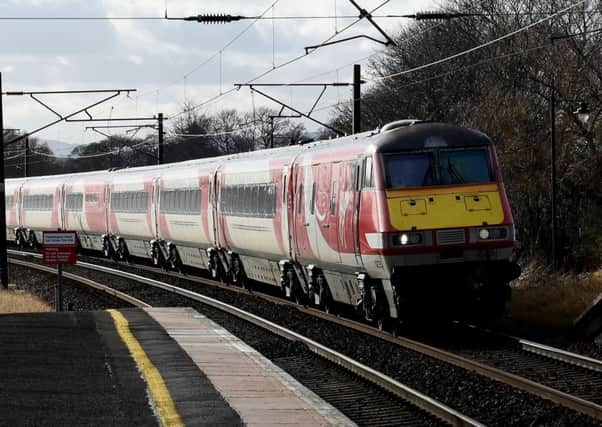East Coast rail line growth forecast was '˜wildly wrong'


The verdict comes four years after the consortium won the Scotland-London train contract despite paying twice as much as its two previous operators, who both defaulted on repayments to the Treasury.
UK ministers are deciding the future of the franchise after announcing in February that Virgin Trains East Coast could go bust within months.
Advertisement
Hide AdAdvertisement
Hide AdMPs expressed concern the consortium could be allowed to continue running the trains between Edinburgh, Glasgow, Aberdeen, Inverness and London. The firm was due to end the contract three years early in 2020 because it was struggling to repay the £3.3 billion cost.
MPs said rail franchising by the Department for Transport (DfT) was a “broken model”.
They criticised the DfT’s “completely inadequate” management of the East Coast and joint Thameslink, Southern and Great Northern franchises.
The committee said a DfT review should be carried out into how performance was overseen and how passengers and taxpayers were protected if franchise agreements were broken. The East Coast franchise had failed “yet again... because the operator’s passenger growth forecasts were wildly wrong and created a serious gap between predicted revenue and reality”, the committee said.
Advertisement
Hide AdAdvertisement
Hide AdChair Meg Hillier said: “The government appears to have seen its task as simply to contract out the service, with wholly inadequate consideration given to passengers’ best interests and behaviour. “This imbalance cannot continue. The franchising model is broken and passengers are paying the price.”
GNER won the franchise after rail privatisation in 1996, but defaulted on its £1.3bn contract in 2006. Successor National Express defaulted on its £1.4bn contract in 2009.
A DfT spokesperson said: “It is disappointing the committee has produced such an imbalanced report that fails to grasp the complexity of the situation.
“Our franchising model already puts passengers and taxpayers first and has doubled the number of passengers using trains since privatisation reversed decades of decline and under investment under British Rail.”
Advertisement
Hide AdAdvertisement
Hide AdA Virgin spokesperson said: “We have met or exceeded all of our contractual commitments and have never lost sight of our focus on customers, delivering industry-leading passenger satisfaction, and progressing our £140m investment programme. We believe we are best placed to continue the transformation.”